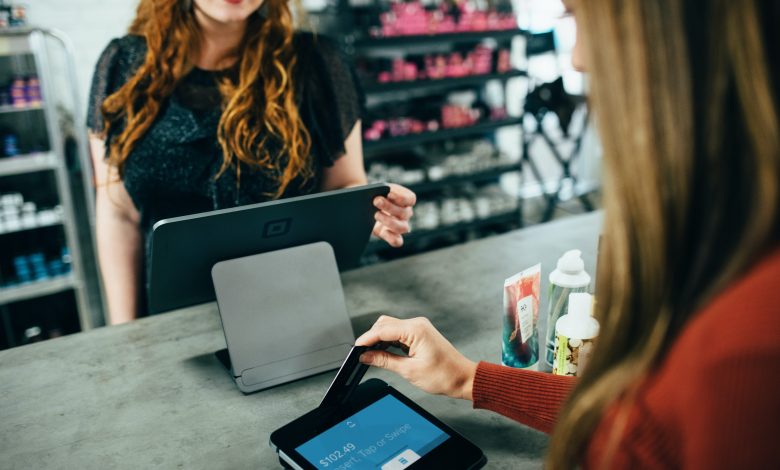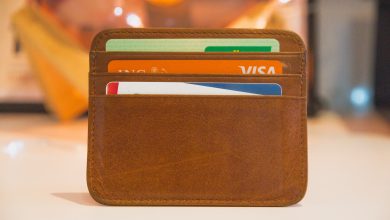How to Responsibly Use a Credit Card

Almost every adult has one, but not everybody is clear on exactly what they do or how they work. In very simple terms, a credit card is a type of card that can be used to borrow money in order to pay for things. It therefore differs from a debit card, which in most cases simply lets you use money from your bank account in the same way.
Because you borrow money when you pay for something with a credit card, it is therefore necessary to pay this amount back at some point. The period for such repayments is usually 25-30 days. After this, banks often charge extras for credit card repayments, which can be thought of as a type of interest. This is in addition to paying back the amount that you used when you paid for your purchase with the card.
If you’ve not actually used a credit card before, you may be wondering what the benefit of using one is if you may end up needing to pay interest on top of your repayments. While it is a good rule of thumb to avoid owing money whenever possible, there are certainly some benefits or advantages to using a credit card in the place of a debit card, for example. Many credit cards offer their users rewards, which can be a nice way to get more out of your purchases. They can also allow you to make larger purchases that you wouldn’t be able to afford otherwise, and you can pay them back in installations, which makes the process much easier.
However, credit cards do have their downsides. These are not necessarily inherent to a credit card itself, but they often end up being difficult for people to use responsibly, as it is simply too enticing to use the cards due to their convenience and the fact that they allow people to purchase things that they wouldn’t be able to afford otherwise. Something that is unfortunately quite common is people using credit cards to spend more money than they have or can realistically pay back, and they subsequently end up in quite a large amount of debt.
This can be very bad for your credit score. If you miss payments or max your card out), your credit score drops, and it can be very difficult to rebuild your credit score once this has happened. We touch on credit scores in more detail later in the article. Another potential downside is the nature of interest. While the amount that you owe may be small to begin with, it can quickly become pretty large and overwhelming thanks to the nature of interest. This can subsequently make payments too large to repay, and they only get bigger and bigger, which creates something of a snowball effect.
It’s also worth noting that not everybody really needs a credit card. For example, if you are financially independent but never find yourself in a position that you need to make particularly large purchases, then you can probably get by without one and just use a debit card for ATM withdrawals and card purchases. If you aren’t financially independent either, then it might be best not to have a credit card, as you can quite easily end up spending substantial amounts of someone else’s money with a credit card that they then have to pay back.
Choosing a Credit Card
Having said all this, credit cards are still a vital part of most people’s finances. As such, we’ve compiled some advice on choosing the right credit card for you, if you are looking into getting one. One of the most important things to think about when going into purchasing a credit card is whether or not you are going to be paying interest on the card. This is largely determined by if you pay your loans back on time or not. If you don’t expect that this is the case, then it’s best to choose a card that has a low interest rate. That way, you can minimize the amount you are going to be accruing on your repayments and therefore the amount of extra that you need to pay.
However, if you do anticipate paying back all your loans on time, then you have arguably a much greater variety of cards to choose from. In this instance, it’s best to choose a card with rewards that you are most going to benefit from. Your credit score likely determines which programs you are eligible for, and the better your credit score, the better the programs you are most likely going to be eligible for. One example of a fairly common type of rewards scheme is through an airline; such a card earns you airline miles with purchases, which you can eventually use to purchase airline tickets once you have accrued enough points.
The kind of card you can get is also largely determined by the bank that offers the card. This is why it’s important to find a bank that offers cards that suit you and what you’re looking for. Some payment networks are also not accepted as widely as others, depending on what part of the world you are in. For example, if you travel a lot and intend you use your card overseas, American Express is not as easy to use overseas as Visa or Mastercard cards, as many countries and businesses outside of the USA do not take American Express.

Types of Cards
The type of credit card that is right for you depends entirely on your personal and financial situation. If you are looking into getting your first ever credit card, then it’s important to choose one that lets you build up a good credit score without making it too difficult. This is crucial, as building up a good score now puts you in a better position later on if you start thinking about taking out a large loan or purchasing a house or car, for example. In a sense, you can think of your first card as an opportunity for you to practice using credit, as well as developing a credit score that can be an asset to you later on.
As such, it’s a good idea to choose a card with some rewards, but also arguably one that is not going to let you borrow more than you are able to pay back. Discipline is a key part of building up a good credit rating, so it’s vital that you have some self-control when you use your card. Just because you have the freedom to buy things that you wouldn’t be able to afford otherwise, doesn’t mean that you should. Keeping on top of your finances properly means using your card responsibly and thereby ensuring that you get to build up an excellent credit rating. Think of it as an investment in your future.
Travel Reward Card
If you travel a lot for work or leisure, then a travel card can be a good way to avoid extra fees and interest charged to your account. Furthermore, you can use your credit card to pay for these, and thereby free up some of your budget for other expenses. This is an especially good idea if you have a type of card that is not as widely accepted overseas, as this can become quite inconvenient if you are often unable to use your card while you travel.
Secured Credit Cards
If you are just becoming financially independent for the first time, then it can be a little difficult to actually acquire a credit card. However, if you feel you are in a position to stay on top of your credit and loans, then you can apply for a secured credit card. These cards require a cash deposit to obtain, but this often means that the supplying institution is more willing to give you a card than they would be otherwise, and the deposit sort of works like a substitute for a credit rating.
Student Credit Cards
Another option in this instance is a student credit card. Not everyone realizes that these exist, but some lending institutions do have credit cards which are intended especially for students. If you are under 21, then you often need to demonstrate that you are financially independent. However, if you are 21 or over, then that is sufficient in order to be eligible for such a card, provided that you are a student, of course. The expectation here is that you don’t have much credit built up yet or a credit rating, so it can be another good choice for developing your credit score.
Authorized User
One final option for those who are not entirely financially independent is becoming an authorized user of someone else’s bank account. This allows you to have a credit card that is linked to an account, but you don’t actually have responsibility over repayments. This means that you get to use the card, but the holder of the account is the one who has to ensure that your repayments are made. As such, this is probably best to use with a guardian or parent who is happy to support you financially in some way. It also lets you build up your credit rating, so it could be a good option for those who are underage but already thinking about developing their score so that they’re in a position to apply for a decent card when they’re older.
Credit Card Interest and Fees
Your credit card does not come free, in a sense. Credit card companies do make money, and this is largely through different types of fees. Oftentimes, it’s necessary to pay a small transaction fee when you use your card to make a purchase – this typically goes straight to the provider. This is charged to the merchant instead of the customer, so is not something that you pay directly. Many businesses today still do not accept card payments, and this is part of the reason why. If they take a payment in cash instead, then they don’t lose anything in the form of transaction fees. Fees charged for late repayments or interest are also part of how credit card companies make their money.
There are other fees that these companies charge, and the type of fee depends on the type of card you have and often what types of rewards it offers as well. Cards that offer especially great rewards or that are available to people with low credit scores often charge an annual fee, for example. On top of this, it’s also necessary to pay fees as a consequence of late repayments of loans, as well as interest.
Another type of fee that is quite common and good to avoid if possible is a balance transfer fee. This is a fee that you incur when you move debt from one of your credit cards to another of your credit cards. It’s possible to avoid this fee depending on the type of card you have, but other providers charge 3-5% of the amount that you transfer as a fee. As such, if you want to avoid this fee, then choose a card or provider that states that they don’t charge for such transfers, or simply ensure that you don’t accrue enough debt that you need to transfer it to another card.
Many providers also charge a fee for borrowing cash on your credit card. The amount depends on the provider, but it is typically around 2-5% of the amount that you borrow. This type of fee is very common, so the best way to avoid it is by taking cash out of your savings account if you end up needing money last-minute or are in some type of emergency situation. If you don’t have enough money saved up currently to cover all of your expenses for a minimum of three months without working, then we recommend that you focus on saving more before you consider getting a credit card. The more you have in emergency savings, the better. If you can save up six to twelve months’ worth of expenses, you are going to be in a much more stable position if you end up unable to work for some reason.
Understanding Your Credit Score
In simple terms, your credit score is a number that financial third parties use to determine how risky it is for them to lend you money. The number is determined by your borrowing behavior and trends. For example, if you have a tendency towards paying your loans back on time, then your credit score should be high, and you are more likely going to be able to borrow money than someone whose credit score is lower.
Your credit score also affects how much interest you have to pay on something in many cases. If your credit score is high, then you likely don’t have to pay as much interest on a loan, for example, than someone whose credit score is lower. Conversely, if your credit score is very low, then you might not be eligible for certain loans, or you might end up with a very high interest rate if you do end up getting approved.
Many of the most lucrative or rewarding credit card schemes are often only available to those with the best credit scores. This is one of the reasons it is so important that you keep your credit score as high as you can. It’s also quite influential if you end up trying to get an auto loan or a mortgage, as these lenders have the same concerns as banks do. Simply put, the higher your credit score is, the better your options.
Perhaps the most pertinent thing in this context that affects your credit score is credit card repayments. These impact your credit score negatively, and the amount itself that you owe may not matter. What matters is that you pay your loans back on time because building your credit score back up once it has taken a hit can be very difficult. The easiest way to ensure that you do so is by not using more money than you can relatively easily pay back in the first place.

Using Your Credit Card
It’s not uncommon for people to use their credit cards for all of their purchases. However, we would recommend against doing this, if at all possible. This is because you can end up accruing unnecessary debt, when you may be in a position to use a debit card or other form of payment instead. As such, we recommend that you have both a debit and a credit card and that you use your debit card for smaller payments and purchases. Small purchases with a credit card can become quite a large amount over time, and failing to pay back your loans results in a worse credit score.
Having said that, a credit card with a particularly advantageous rewards program can be great to use because of the rewards that it offers. If you are sure that you are going to be able to make your repayments on time, then it can be a good idea to use your credit card for larger purchases especially, as this lets you make the most of the rewards program. There isn’t much point in choosing a card with such a program and subsequently not using it.
However, it is almost always wise to avoid using your credit card for making cash withdrawals, as this is a common way to accrue large amounts of interest without it being very obvious at the time. It is always better to take cash out of a savings account unless it is absolutely necessary that you use your credit card. This would generally only be the case if you do not have enough money in savings, and as mentioned above, we recommend that you save three months’ worth of expenses at a bare minimum before you focus your attention on other parts of your financial situation.
Budgeting with a Credit Card
Budgeting is a key element of financial planning, and if you use a credit card, then you should factor this into your planning. While it can allow you to buy more than you would otherwise, your card should not be an excuse to spend much more than you are realistically going to be able to at the end of the month, as this does have consequences. Conversely, you should factor your future repayments into your monthly budget so you know roughly how much you have to pay in fees at the end of the month, and ensure that you have this money set aside to avoid incurring any late fees or extra interest.
If you aren’t sure of how to budget, we generally recommend that you track all your expenses and income for a few months and see how much you earn after tax and how much you typically spend. Once you have done this, you should have a clear understanding of how much money you subsequently need to set aside for your card repayments and how often you genuinely need to use the card. Again, it’s best not to use a credit card for payments when it isn’t actually necessary, as this just results in a larger repayment at the end of the month than you would need to make if you had used some other method. Proper budgeting is key for ensuring that your credit score does not take a hit due to late repayments on your credit card.



